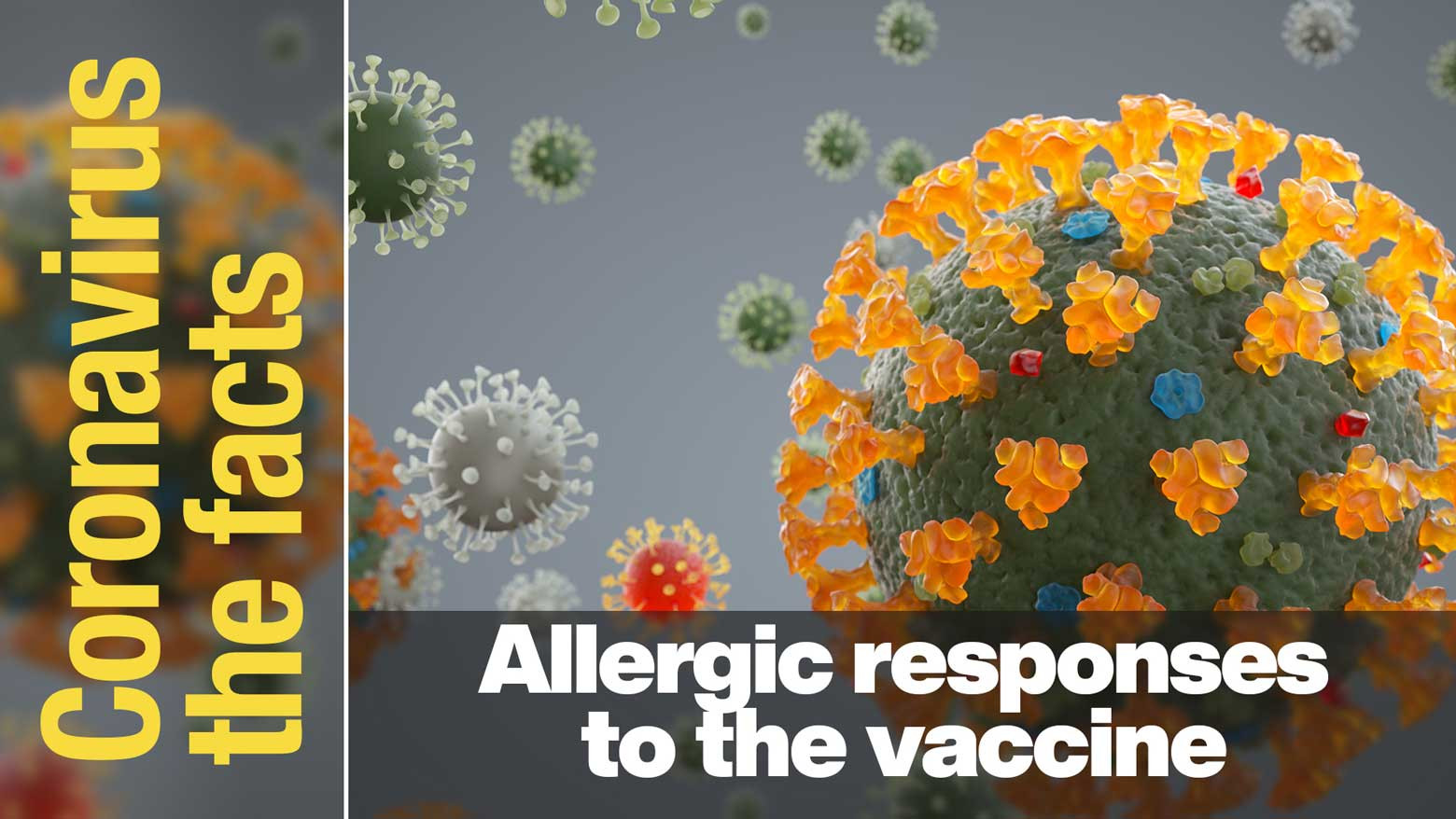This is part 67 of our coronavirus FAQ. Click here to read other installments: #Coronavirus the facts. Find the latest information and answers from experts on everything COVID-19.
Should we take the vaccine?
The US Centers for Disease Control and Prevention (CDC) announced on January 6 that the values of the vaccine exceed the risks of coronavirus infection, and recommended that people get the shot.
How common is an allergic response?
In the US, 1,893,360 people took the first dose of COVID-19 vaccines between December 14-23. As of January 6, 21 people experienced severe allergic responses, called anaphylaxis. This comes out to a rate of 11 cases per 1 million vaccinations.
The rate of anaphylactic shock for the vaccine is about 10 times that of the flu shot. But the CDC points out that it is still exceedingly rare for the COVID-19 vaccine to cause such side effects and it is a very safe vaccine.
The CDC also notes that data compilation is still in its early stages, something that limits risk comparison with other vaccines.
Who is likely to experience anaphylaxis?
The CDC figures show that 17 out of 21 people who developed an anaphylaxis symptom had a documented history of allergies or allergic reactions, including to drugs or medical products, foods, and insect stings.
Allergic reactions to the coronavirus vaccine became apparent within 15 minutes for 71% of those affected, with 14% showing signs within 15-30 minutes and 14% taking more than 30 minutes.
Did people recover from allergic responses?
Some of the 21 people were hospitalized. The 20 patients whose progress was followed recovered or were discharged from hospital. No deaths were reported.
Should people with allergies reconsider getting the vaccine?
The CDC advises that it is an unnecessary precaution for people allergic to foods, animals, or other substances to avoid getting the vaccine.
It recommends that people who have experienced symptoms after vaccines or injections in the past should stay at vaccine sites to monitor their condition for at least 30 minutes. All other people should be monitored for at least 15 minutes.
For more information, visit the following websites:
- A CDC report released on Jan. 6, 2021.
https://www.cdc.gov/mmwr/volumes/70/wr/pdfs/mm7002e1-H.pdf
- CDC press briefing transcript from Jan. 6, 2021.
https://www.cdc.gov/media/releases/2021/t0106-cdc-update-covid-19.html
- COVID-19 Vaccines and Allergic Reactions (CDC)
https://www.cdc.gov/coronavirus/2019-ncov/vaccines/safety/allergic-reaction.html
This information is accurate as of Jan. 26, 2021.
